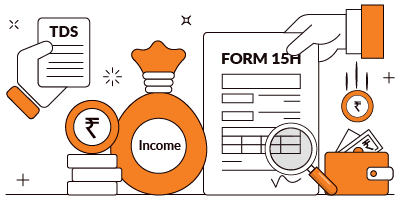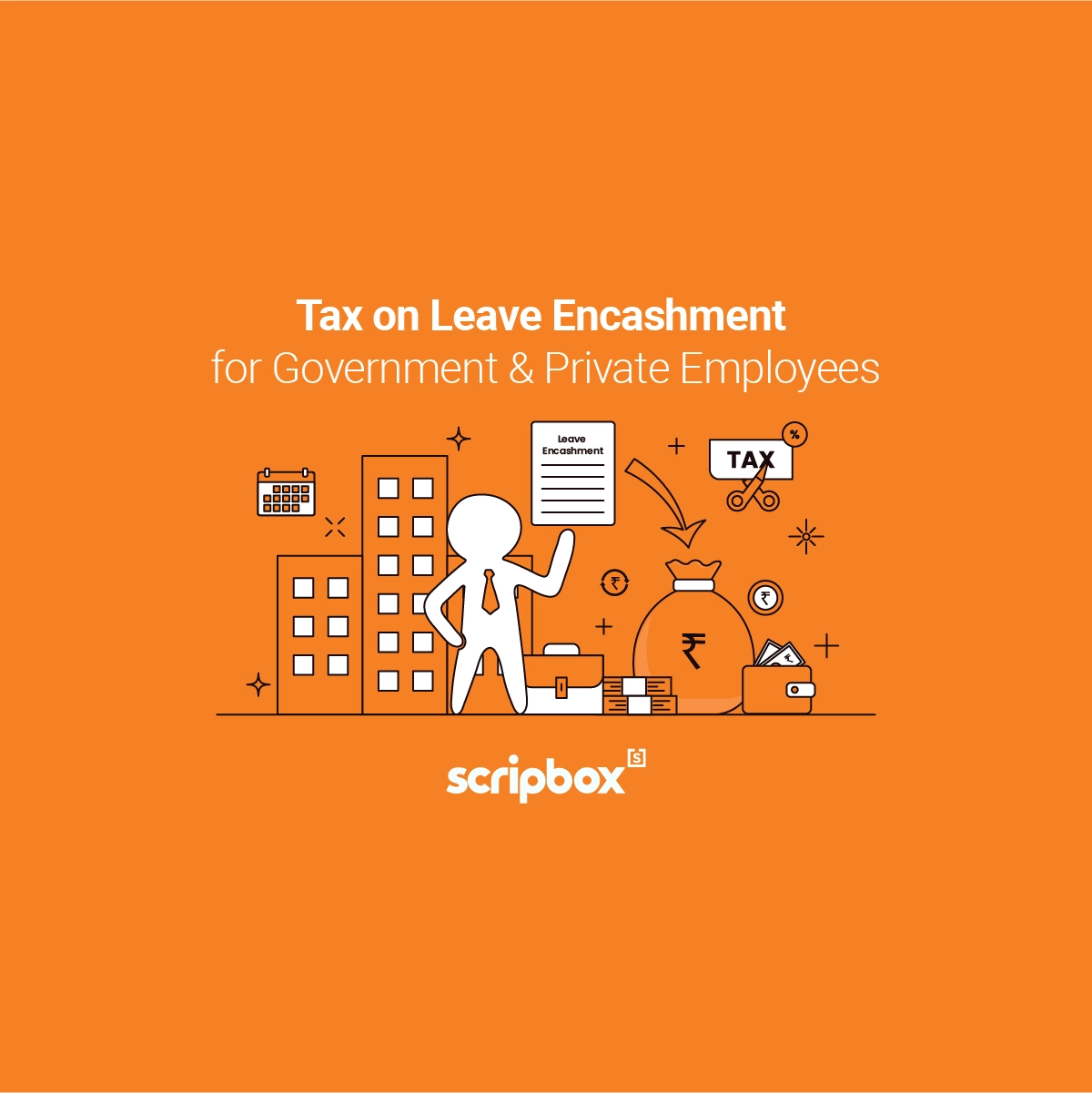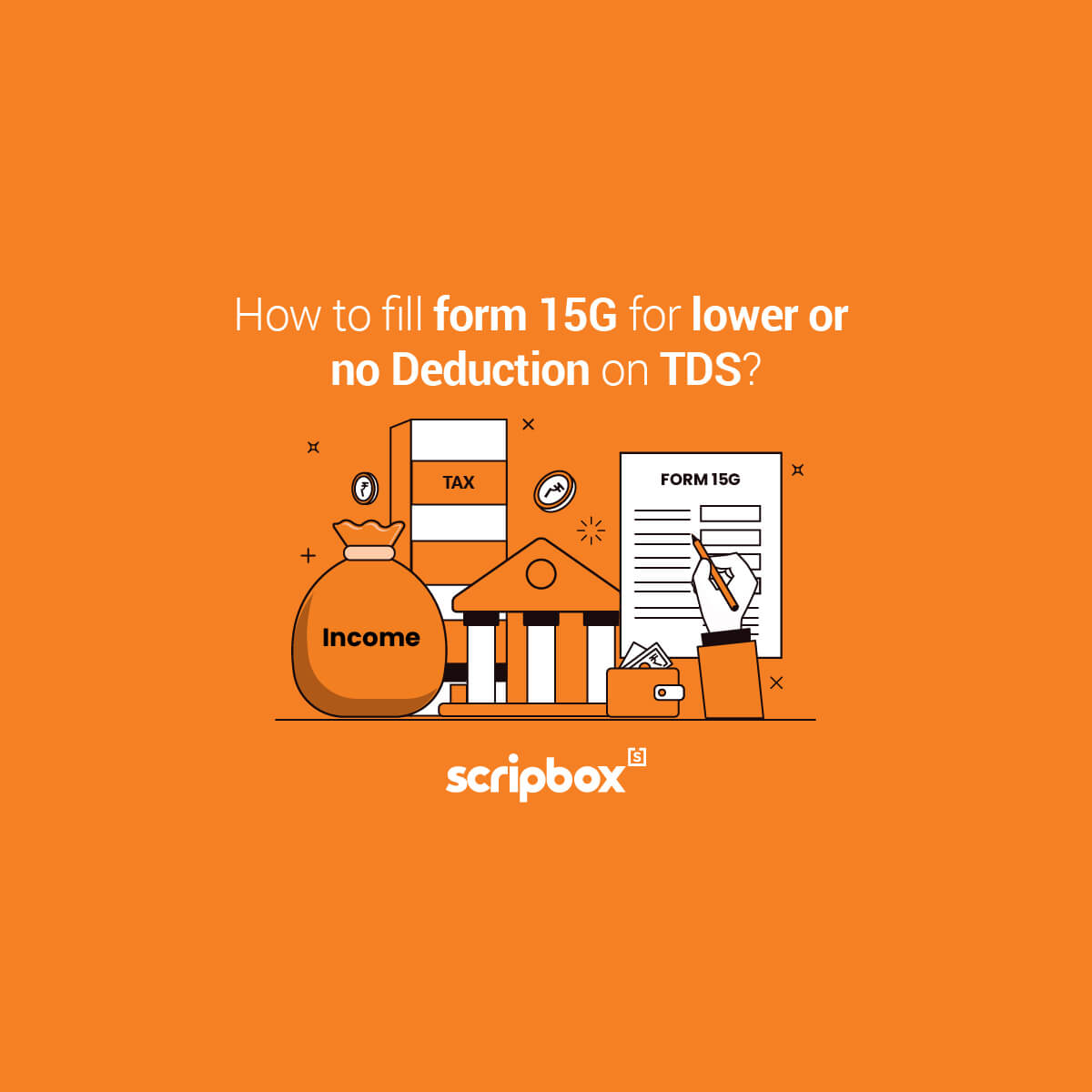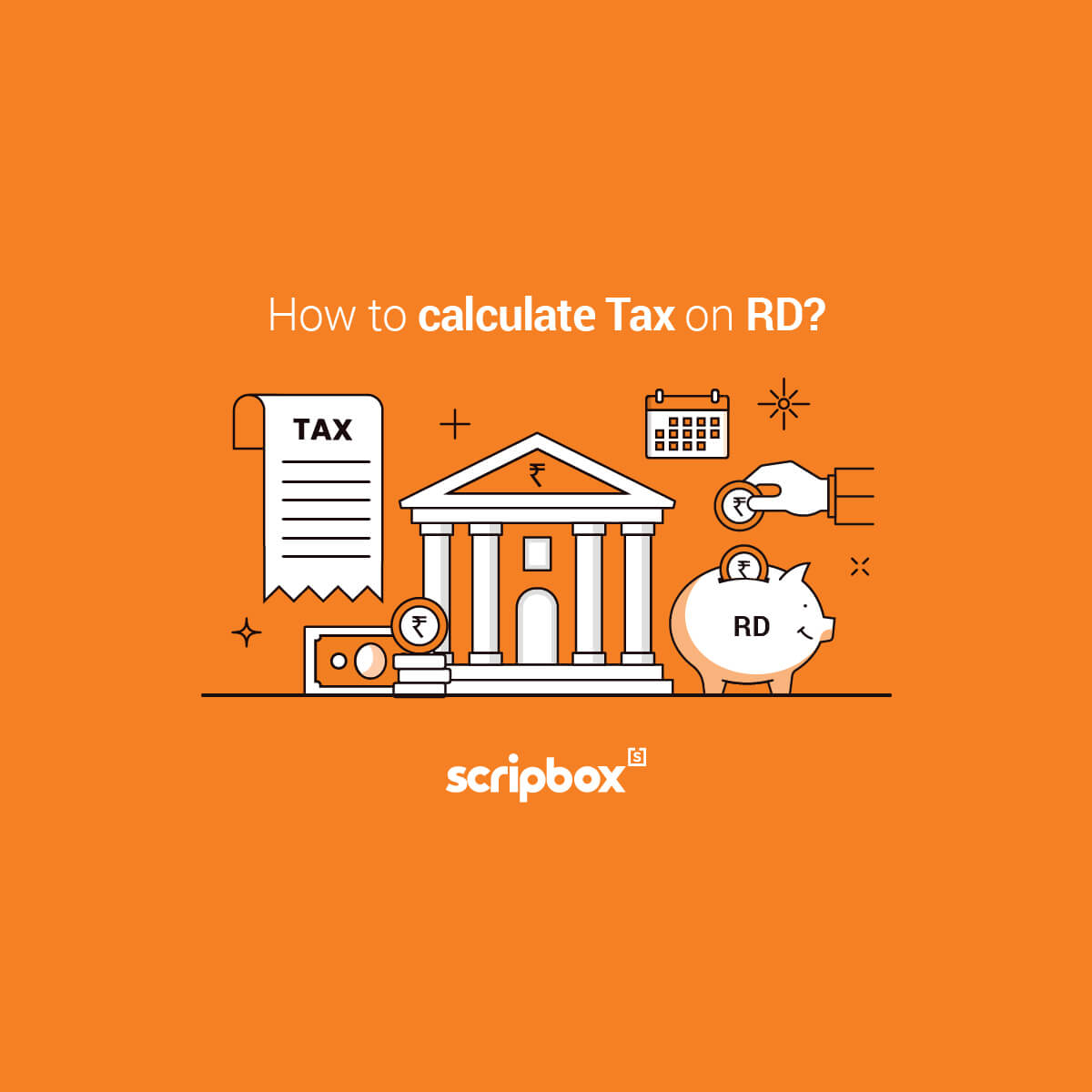Form 15H is a very popular form among investors and taxpayers. To avoid deduction of TDS from your interest income you can surely opt for this route. You can avoid TDS on interest income, rental income, insurance commission, insurance maturity receipts, and EPF withdrawal. However, you must fulfill the conditions laid down by the Income Tax Act, 1961. In this article, we have covered the eligibility criteria, a guide to filling Form 15H, and the purpose of filing it.
What is Form 15H?
The tax deducted at source TDS is deducted by the banks if the interest on a fixed deposit or a recurring deposit exceeds Rs 50,000 in a financial year. This is applicable to resident senior citizen taxpayers. However, a senior citizen taxpayer can submit a declaration and ensure that TDS is not deducted from his/ her interest income on a deposit. The declaration can be submitted in Form 15H Declaration under section 197A(1C) by mentioning the required details. Your PAN is a mandatory and most important field in Form 15H.
You can submit the form to the banks, NBFCs, or post office who are responsible for paying the interest income. Usually, you can submit Form 15H online by logging in to your internet banking. However, many post offices are not digitized and might need to submit Form 15H offline by visiting the branch.
Who Should File Form 15H?
Form 15H must be submitted by a taxpayer who fulfills the following requirements:
- The taxpayer must be an individual assessee. Other entities like companies, HUF, partnership firms, etc are not eligible to file Form 15H.
- The taxpayer is a resident of India
- He/ she is a senior citizen who is more than 60 years of age at the time of filing Form 15H.
- The total income tax liability of the taxpayer must be NIL for the financial year
Purpose of Filing Form 15H
You can submit Form 15H for the following purposes as prescribed by Section 197A(1A) of the Income Tax Act, 1961:
- TDS on Fixed Deposits – This is the most popular and often opted option among the senior citizens. You can file Form 15H and ensure that the bank or any other person paying interest income does not deduct TDS.
- Interest on Corporate Bonds – TDS is to be deducted if the interest income on corporate bonds exceeds Rs 5,000. By submitting the form you can ensure TDS is not deducted.
- Deposits with Post Offices – You can submit it to the post office and avoid TDS deduction. Make sure that the post office accepts your form. Not all post offices are digitalized.
- Rental Income – Your tenant needs to deduct TDS under section 194IB. If the rent exceeds Rs 50,000 per month during the financial year then the tenant will deduct TDS at a rate of 5%. You can provide Form 15H to your tenant and ensure no deduction of TDS
- Insurance Commission – Section 194D of the Income Tax Act, 1961 provides for deduction of TDS if the insurance commission exceeds Rs 15,000. The rate of TDS is 5% for a person other than a company while the same is 10% for a domestic company. By submitting the form you can ensure the entity paying the commission does not deduct TDS while paying you the commission.
- Insurance Maturity Receipts – TDS at a rate of 5% is to be deducted on the amount of income comprised in the proceeds paid or payable upon maturity on or after 1st September 2019. The insurance company will not deduct TDS if you submit form 15H.
- EPF Withdrawal – If you withdraw from EPF before 5 years of continuous service an amount for than Rs 50,000 then TDS is deducted. By submitting Form 15H you can avoid TD deduction on such a withdrawal. Moreover, the process of uploading the form is very easy, seamless, and online. However, you must ensure that the conditions for submitting the form are met and the total tax liability is nil.
Components of Form 15H
Form 15H is divided into 2 parts. The following are the parts of Form 15F along with the components:
Part-A of Form 15H
To be filled by the taxpayer who is claiming certain incomes without deduction of tax.
- Name of Assessee (Declarant)
- Permanent Account Number or Aadhaar Number of the Assessee
- Date of Birth in DD/MM/YYYY format
- The previous year (P.Y.) or financial year for which declaration is being made
- Permanent Address- Flat/Door/Block No., Name of Premises, Road/Street/Lane, Area/Locality, Town/City/District, State, and PIN code
- Email address- make sure this email address is the same as mentioned in your income tax account statement.
- Telephone No. (with STD Code) and Mobile No
- Whether the assessee is assessed to tax. If yes, then mention the latest assessment year for which assessed.
- Estimated income for which this declaration is made
- Estimated total income for the financial year
- Details of Form No.15H other than this form filed for the previous year, if any
- Total No. of Form No.15H filed
- The aggregate amount of income for which Form No.15H filed
- Details of income for which the declaration is filed. Identification number of relevant investment/account, Nature of income, Section under which tax is deductible and Amount of income
- Signature and declaration.
Part-2 of Form 15H
To be filled in by the persona responsible for paying the income and deducting TDS
- Name of the person responsible for paying
- Unique Identification No
- Permanent Account Number or Aadhaar Number of the person responsible for paying
- Complete Address
- TAN of the person responsible for paying
- Email and Telephone No. (with STD Code) and Mobile No.
- Amount of income paid
- The date on which Declaration is received in DD/MM/YYYY format
- The date on which the income has been paid/credited in DD/MM/YYYY format
- Place, date, and signature of the person.
How to fill Form 15H?
While filling form 15H you must remember the following points:
- Always check for eligibility. You can submit Form 15H only if you are eligible. In case you file it without meeting the eligibility criteria you might have to pay a penalty for incorrect disclosure of information.
- Make sure that you quote the correct PAN. If the PAN is incorrect or missing then TDS will be deducted at a rate of 20%. Moreover, the declaration under section 197A(1C) in form 15H will be invalid. Hence, it is better to attach a photocopy of your PAN to avoid such situations.
- Make sure that you quote the applicable assessment year. Many times taxpayers get confused between a financial year and an assessment year. They mention the financial year instead of an assessment year.
- You must provide the estimate of total income as accurately as possible.
- You need to fill in only the Part-A of the form. Part B needs to be completed by the person responsible for paying the interest income to you.
- Keep an acknowledgment receipt of the form to avoid any dispute in the future.
- Make sure your address, telephone number/ mobile number, email address, and signature match with income tax records.
- Always remember that this form is not a substitute for your annual tax return. You still have to file your income tax return before the due date.
- Mention the distinctive number of shares, account number of term deposit, recurring deposit, National Savings Schemes, life insurance policy number, employee code, etc.
You can explore our article on TDS on Rent
Things to keep in mind while filing Form 15H
- Before signing the declaration/verification, make sure that the information furnished in this form is true, correct, and complete in all respects.
- If you make a false statement in the declaration then you shall be liable to prosecution under section 277 of the Income-tax Act, 1961 and on conviction be punishable.
- The respective assessing officer has an access to the records relating to all the forms submitted by the assessee. Hence, the assessing officer can anytime validate the form for any misrepresentation and incorrect information. Always make sure you mention the total number of Form 15H submitted during the financial year.
- Form 15H is valid only for the financial year. Hence, you need to file a fresh form every financial year.
What is the difference between Form 15H and Form 15G?
| Criteria | Form 15G | Form 15H |
| Applicability | Resident individual, HUF, trust, and other assesses. The individual must be less than 60 years of age. Not applicable to a company and a partnership firm. | Resident Senior Citizen who is more than 60 years of age |
| Tax | Tax on total income is NIL.The interest income for the financial year is less than the basic exemption limit. | Tax on total income is NIL. The total interest income can be more than the basic exemption limit. |
Recommended Read: Form 13 in Income Tax
Frequently Asked Questions
Yes, you can submit Form 15H online. In fact, almost all the banks provide the facility of online form submission. However, you might have to submit the form offline with post offices and a few Gramin banks.
Every Form 15H is valid for the financial year and the assessment year for which the assessee files it. You need to submit it every year with an accurate estimation of income for that particular year.
No, you do not need to submit the form 15G/H to the income tax department. Moreover, you only need to submit it to the person who is responsible for paying the interest income. Such a person could be the bank with which you hold a fixed or recurring deposit. It could be a post office wherein you hold a deposit scheme and earn interest income.
In case you forgot to submit Form 15H then you must immediately file it. Most of the banks deduct TDS on a quarterly basis. If you submit before the next quarter then you can avoid TDS for the rest of the financial year. However, if you have not submitted for the financial year at all then the only option is to claim a tax refund. You claim a tax refund of the TDS amount by filing the income tax return.
If you file an incorrect Form 15H then such a false statement in the declaration shall be liable to prosecution under section 277 of the Income-tax Act, 1961 and on conviction be punishable. In a case where tax sought to be evaded exceeds twenty-five lakh rupees, rigorous imprisonment will be imposed. Such rigorous imprisonment shall not be less than six months but which may extend to seven years and with a fine. In any other case, the rigorous imprisonment shall not be less than three months but which may extend to two years and fine.A Complete Guide on What is Form 15H? How to File Form 15H?


















Show comments